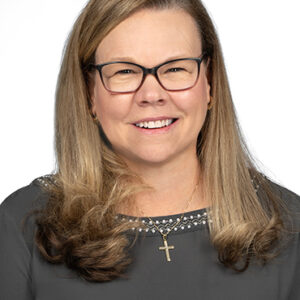When legal matters involve complex financial issues, the role of a forensic accountant becomes crucial. These professionals provide numbers-based evidence that can help courts and litigants make informed decisions. However, selecting the right forensic accountant is essential to ensuring reliable, ethical, and defensible findings. This article explores key considerations when choosing a forensic accountant.
The Origins of Forensic Accounting
The word “forensic” comes from the Latin word forum, or community center where the first public hearings took place, long before formal courtrooms. Forensic accountants provide numbers-based evidence for legal proceedings, whether or not the case ever sees a courtroom. To be accepted as evidence, forensic accountants’ work must comply with various guidelines set forth both by law and by industry.
Federal Rules of Evidence and Forensic Accounting
Established in 1972, the United States’ Federal Rules of Evidence were intended to create uniformity among courts related to the permissibility of evidence. Rule 702, revised in December 2023, stipulates that the litigant producing an expert’s testimony as evidence can only do so if they can demonstrate that the expert’s knowledge and opinion helps the judge or jury understand a matter or determine a fact, and the expert’s opinion is based on sufficient facts or data against which reliable principles and methods have been applied. What that means for forensic accountants is first, that we need to clearly set forth the data relied upon for forming our opinions, as well as describe the methodology by which we examined that data. A reasonable person performing the same procedures should be able to reach the same conclusion.
Professional Standards and Ethical Considerations
If the forensic accountant testifying is a Certified Public Accountant (CPA), they are bound by of the Association of International Certified Public Accountants (AICPA) Code of Professional Conduct, and recently adopted Statement on Standards for Forensic Service No. 1, which require forensic accountants to accept only engagements for which they feel reasonably competent – “when in doubt, refer it out” is a familiar mantra. In performing an engagement, forensic practitioners must exercise care, adequately supervise staff, and ensure the data they are considering for their opinion is sufficient and relevant for the matter at hand. At no point can a forensic accountant subordinate their opinion – what they can say based on the data – to what their client wants them to say. We are discouraged from taking any contingent fees, such as a percentage of our ultimate findings, to maintain objectivity.
Maintaining Objectivity and Full Disclosure
Both the AICPA and the Association of Certified Fraud Examiners (ACFE) prohibit members from expressing any kind of opinion of guilt or innocence – “just the facts, ma’am” is another good guideline. Furthermore, the ACFE requires practitioners to reveal any and all findings, not just those that support the case a litigant is trying to make. If an omission of any finding would distort the facts of a case, it must be disclosed, whether the client appreciates it or not. It’s better for that finding to come up first in privileged communication than on the stand when a judge or opposing counsel ferrets it out.
Selecting a Forensic Accountant for Litigation Support
Attorneys and their clients should exercise care when choosing a forensic accountant to assist with potential litigation. A good forensic accountant will maintain certifications like a CPA, CFE, or CFF in good standing. They should have relevant experience in not only investigating the type of matter at hand but also testifying. It’s not uncommon that a good forensic accountant may not have had testimony experience in a certain matter, as settling matters before trial can also be a sign of effective work. Engagement letters between the forensic accountant and Counsel should clearly outline responsibilities and scope of work expected. The forensic accountant should regularly communicate with Counsel any findings as they come up – even and especially if the findings do not support the theory of the case. Finally, clients and their Counsel should never expect the forensic accountant to state that a party to a matter did or did not commit fraud – professional standards dictate that we can’t; however, we can express our findings in such a way that a reasonable trier of fact would come to that same conclusion.
The Bonadio Group’s Fraud & Forensic team has vast experience in litigation support and testimony on matters involving individuals and organizations. For a complimentary consultation, reach out to Karen Skuse at kskuse@bonadio.com or Brian Lafountain at blafountain@bonadio.com.
This material has been prepared for general, informational purposes only and is not intended to provide, and should not be relied on for, tax, legal or accounting advice. Should you require any such advice, please contact us directly. The information contained herein does not create, and your review or use of the information does not constitute, an accountant-client relationship.



